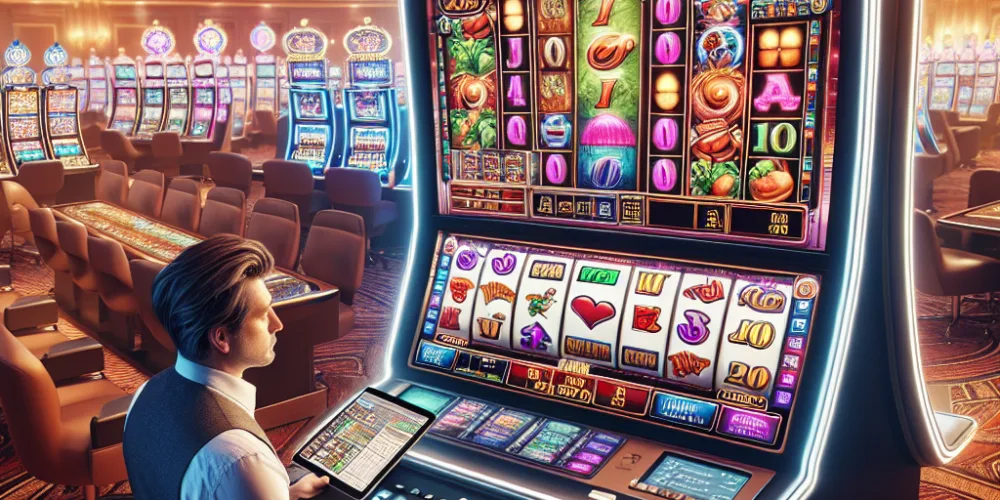In a groundbreaking move to revitalize its gaming industry, the Nevada Gaming Control Board is poised to approve the use of skill-based slot machines across casinos in Las Vegas and beyond, fundamentally altering the landscape of gambling and attracting a younger demographic to the floors. This strategic shift comes as traditional slot machines are failing to engage a tech-savvy, younger audience who seek more interactive and challenging experiences in their gaming pursuits.
Skill-based slot machines integrate video game-like elements that reward players for their abilities to complete challenges or attain certain levels, diverging from the classic model where luck is the sole factor determining outcome. The proposed models include features similar to popular video games, including complex narratives, leveling up, and strategy deployment, which are tailored to resonate with millennials and Generation Z players.
Experts suggest that this evolution mirrors broader changes in the entertainment and gaming industry, where interactivity and user engagement are paramount. According to industry analyst Jason Harper, “The introduction of skill-based slots is a direct response to the changing preferences among younger consumers, who desire skill influence in their games, not just random outcomes.”
Casinos in Nevada are preparing for what could be a radical shift in gaming dynamics. The Venetian Las Vegas has already announced plans to dedicate 10% of its gaming floor to these new machines should the legislation pass. “We’re optimistic about the appeal these games have among the younger crowd. Our pilot tests have shown significant interest, and we believe this could redefine casino gaming,” said Marissa Patterson, a senior manager at the Venetian.
Proprietors are hopeful that this initiative will not only boost engagement but will also increase overall visitation rates, which have seen a noticeable decline among the under-40 demographic. The integration of skill-based games is being seen as a reinvigorating factor for the state’s tourism sector, which heavily leans on gaming revenues.
Furthermore, these advancements might also reflect positively on Nevada’s economy. With increased foot traffic and extended play times potentially boosted by skill-based options, local businesses, including those in the hospitality and retail sectors, could experience growth. “It’s an ecosystem. When the casinos thrive, the whole local economy gets a lift,” noted Harper.
However, this shift is not without its criticisms. Traditionalists argue that moving towards skill-based games might dilute the essence of gambling, where chance should be the predominant factor. There are also concerns about the potential for increased problem gambling, as skill elements might lead players to believe they can master the game, leading to prolonged play.
The Nevada Gaming Control Board is currently conducting public consultations and reviewing data provided by casino operators from trial runs of these new machines. The decision, expected to be made public in the coming weeks, could set a precedent for other states with gaming industries to follow.
As the anticipation builds, all eyes are on Nevada, which could once again reaffirm its status as a pioneering hub in the world of casino gaming, charting a new course for the future of slot machines and casino entertainment.

David Farbacu is a seasoned writer with a passion for games, gaming, casinos, and Xbox. With a wealth of experience in the industry, David brings insightful reviews, comprehensive guides, and engaging articles that cater to both casual gamers and hardcore enthusiasts. His expertise spans across various gaming platforms and genres, making him a go-to source for the latest trends and developments in the gaming world.

